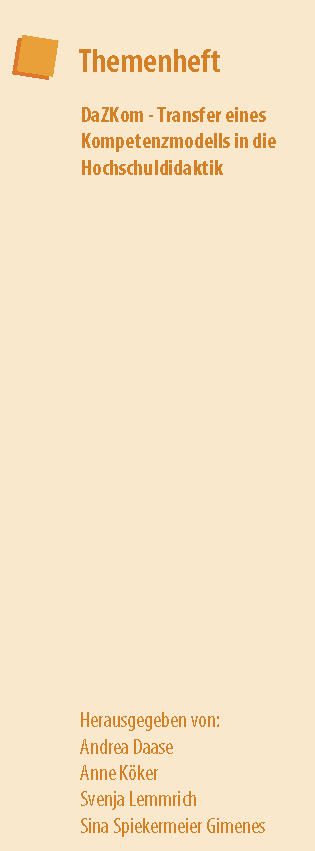Language-Sensitive Textbook Analysis in the Context of the Scaffolding Approach
A Learning Activity
DOI:
https://doi.org/10.11576/hlz-5380Keywords:
didactics, textbook analysis, needs analysis, scaffoldingAbstract
This article presents a learning task that intends to enhance prospective secondary school teachers’ diagnostic competences on the basis of analyzing respective teaching material. Following Gibbon’s (2015; cf. also Beese et al., 2014) macro-scaffolding approach, teaching material is analyzed focusing on general criteria of text quality as well as considering challenges at the lexico-semantic, syntactic and text-linguistic level. Given their significance as a medium of teaching and learning in actual teaching practice, the knowledge of how to reflectively use textbooks in the classroom and to understand the language challenges related to textbooks is an essential aspect of teachers’ diagnostic competence. This learning task is especially designed for students with only basic linguistic knowledge to help them acquire this reflexive knowledge in a limited amount of time. Within the DazKom model the task reflects the dimension didactics and focuses on pedagogical decision-making processes which are related to teaching and learning processes.
Downloads
Published
How to Cite
Issue
Section
License
Copyright (c) 2024 Dorothee Kohl-Dietrich, Eva-Larissa Maiberger

This work is licensed under a Creative Commons Attribution-ShareAlike 4.0 International License.
Sämtliche Inhalte der HLZ werden freigegeben unter der Creative-Commons-Lizenz Namensnennung, Weitergabe unter gleichen Bedingungen, Version 4.0 International (CC BY-SA 4.0). Die Urheber_innen und die Rechteinhaber_innen der in der HLZ veröffentlichten Beiträge gewähren grundsätzlich allen Nutzer_innen unwiderruflich das freie, weltweite Zugangsrecht zu diesen Veröffentlichungen. Unter der Bedingung, dass Autor_innen und Herausgeber_innen gemäß der Zitationshinweise sowie die Lizenz als »Lizenz: CC BY-SA 4.0« einschließlich der untenstehenden Lizenz-URL genannt werden, dürfen die Beiträge der HLZ vervielfältigt, weitergereicht und auf beliebige Weise genutzt werden, auch kommerziell und ebenso online wie in gedruckter oder anderer Form. Auch die Bearbeitung ist erlaubt unter der zusätzlichen Bedingung, dass das neu entstandene Werk als Bearbeitung gekennzeichnet wird und im Falle einer Veröffentlichung unter derselben Lizenz wie in der HLZ freigegeben wird.





